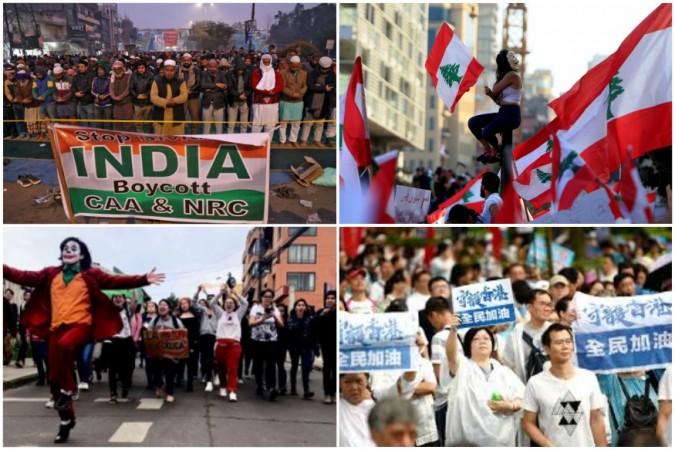
Do you think your social media deck was flooded with videos and pictures of protests taking place around the world? Well, you aren't imagining because the year 2019, was the year of global protest wave. The past 12 months have seen demonstrations erupting in various parts of the world against the government, corruption, taxes and injustice.
The streets saw footprints of protesters who raised their voices higher than their placards demanding change and telling the authorities that 'We have had enough'. From Hong Kong's seven-month-long protest to Chile's subway fare hike evasion, the year 2019 was definitely hit by the protest wave.
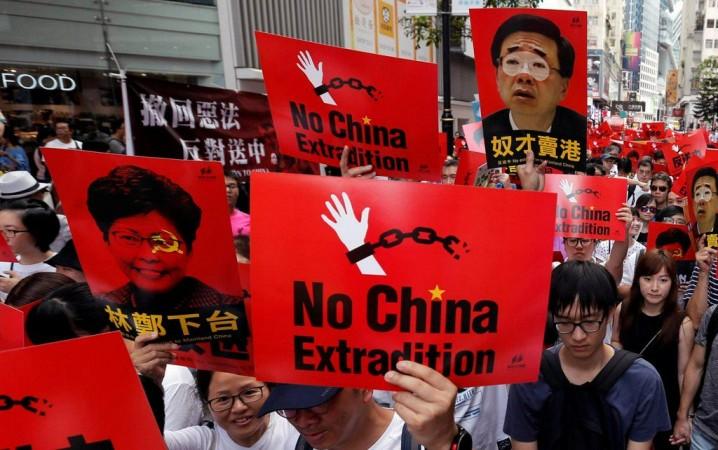
On one hand, the streets of Hong Kong echoed with the thundering chants of "Reclaim Hong Kong! Revolution of our Times!", on the other, chants of 'Azaadi' (freedom) gained momentum in India.
From millenials climbing turnstiles in Chile to an elderly standing against Hong Kong police shooting the protesters, this year the protesters not only revolted on the streets, they even spilled on the highways, public transits and international airports.
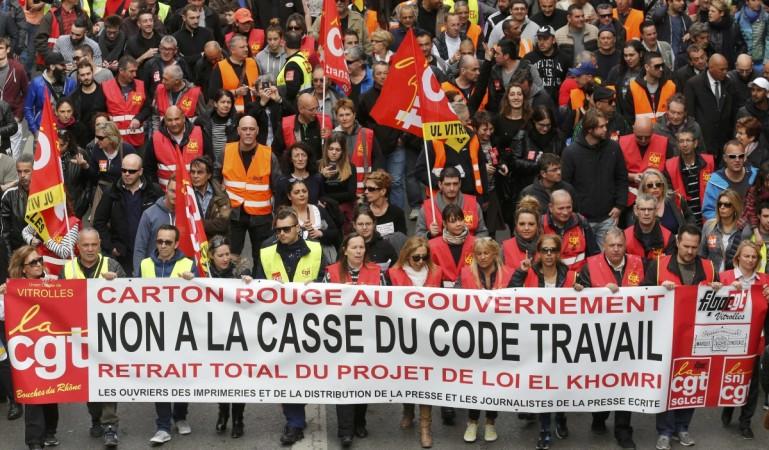
Bolivia, Lebanon, Iraq, Sudan, Iran, India, Columbia, France, Czech Republic, Hong Kong, Spain and many other parts of the world experienced the protest wave this year. Some managed to overthrow the authority while some still continue demonstrating against injustice.
International Business Times, India brings you protests that took the globe by storm in 2019:
India
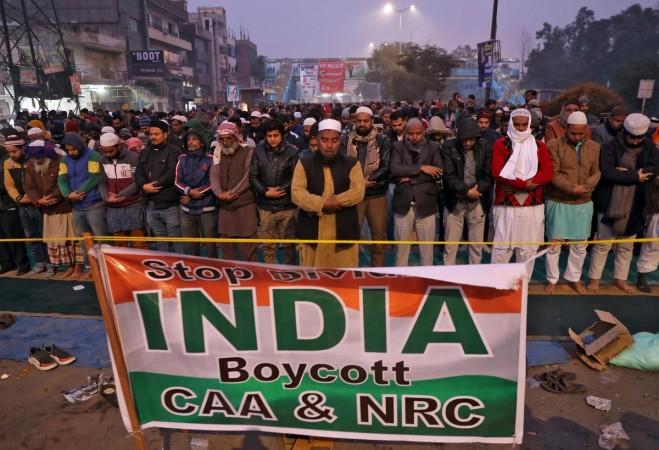
India has witnessed demonstrations since December 12, after Prime Minister Narendra Modi's government enacted the Citizenship Amendment Act (CAA). The Bill amends the Citizenship Act of 1955 to give eligibility for Indian citizenship to illegal migrants who are Hindus, Sikhs, Buddhists, Jains, Parsis and Christians from Afghanistan, Bangladesh and Pakistan, and who entered India on or before 31 December 2014. The bill does not mention Muslims.
Initially, the protests were fierce only in the Northeast where locals feared a threat to their cultural and social identity. Gradually the streets of Delhi, Bangalore, Lucknow, Mumbai and many others witnessed protests leading to clashes with the police force.
The police are accused of using excessive force against students of Jamia Millia Islamia and Aligarh Muslim University. So far at least 25 people have been killed so far.With Section 144 being imposed, internet shutdown in several parts and heavy police deployment, the streets of India are still echoing with slogans of freedom from injustice.
Hong Kong
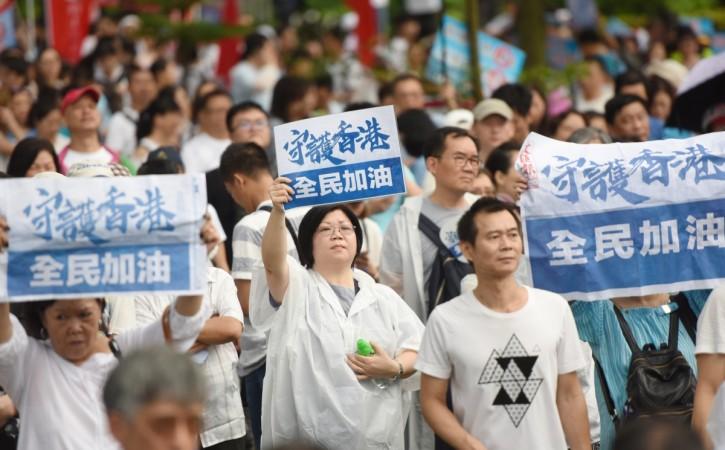
In March, the protest began due to the introduction of the contentious extradition bill which escalated into the city's biggest political crisis and fights for democracy. The bill allowed the Hong Kong government to extradite criminal suspects to face trial in mainland China. At least 2 million people took to the streets on June 16. Two died during the protests.
Hong Kong leader Carrie Lam said on July 9, that the controversial extradition bill which sparked mass protests in the city was 'dead.' The bill was withdrawn on October 23. But the unrest continues leading to larger protests for full autonomy.
Puerto Rico
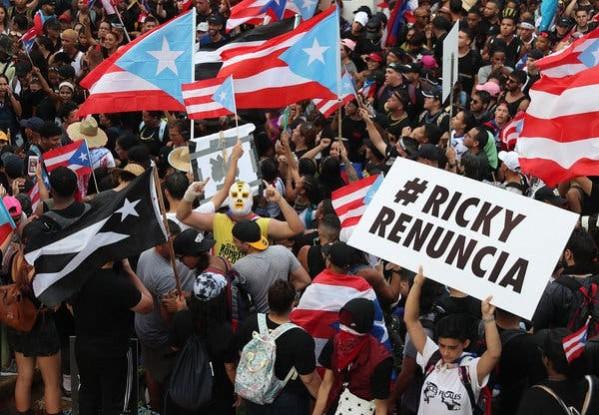
In July, the protesters demanded the resignation of the Governor Ricardo Rosselló, hit the streets with placards that read 'Ricky Renuncia' which signaled the governor to quit. In response to Telegramgate, a political scandal involving Rosselló, which began in July.
Hundreds of pages of messages between Rosselló and staff members were leaked which were called out by the people for its misogynist, homophobic and sexist content. After 2 weeks of protests, on July 24, Rossello went live on Facebook announcing his resignation as the governor. Rosselló officially left his post on August 2.
Middle East
Iraq
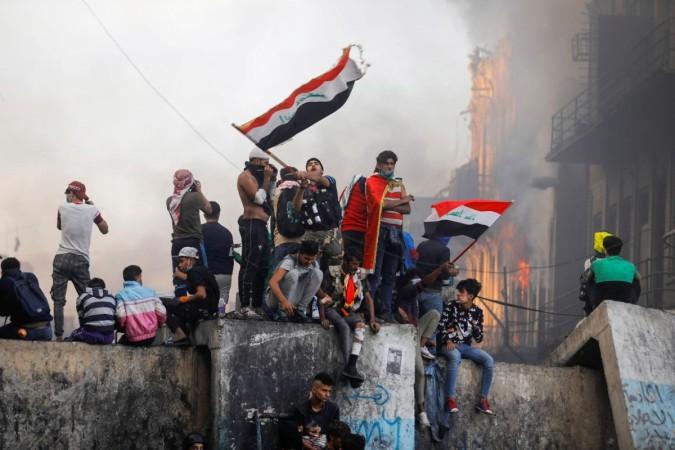
The demonstrations began on October 1, with thousands voicing out against the 16 years of corruption, unemployment and inefficient public services. The protesters also wanted to bring about change in the old structured government frame followed since 2003.
The mass uprisings prompted the resignation of former Prime Minister Adel Abdul-Mahdi. Heavy security forces were deployed, roads were blocked, internet shut down and media access was restricted. Close to 500 people killed, thousands injured and nearly a thousand were injured.
Lebanon
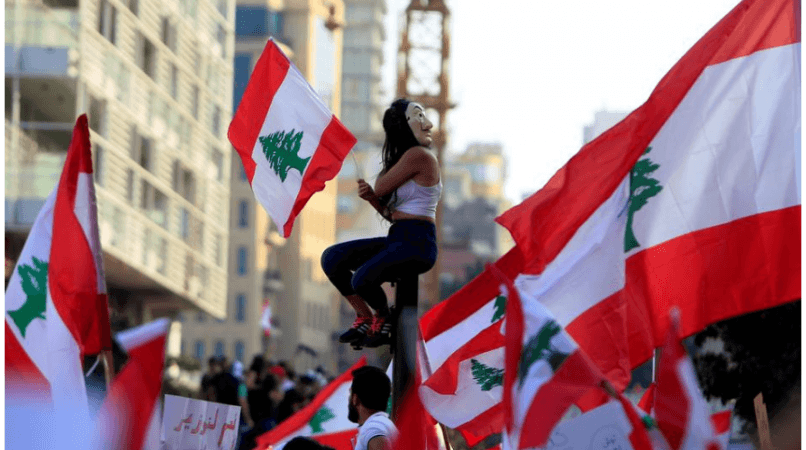
In October, thousands of protesters took to the streets due to Lebanon's deteriorating economic condition. The protests were triggered because of planned taxes on gas, tobacco & online phone calls like WhatsApp. According to reports, the Lebanon government owed $80 billion in foreign debt.
The protests in Beirut was the largest protest against the status quo demanding an end to corruption. On 29 October, Prime Minister Saad Hariri resigned under the pressure of anti-government protesters who blocked the streets of Beirut for two weeks.
Iran
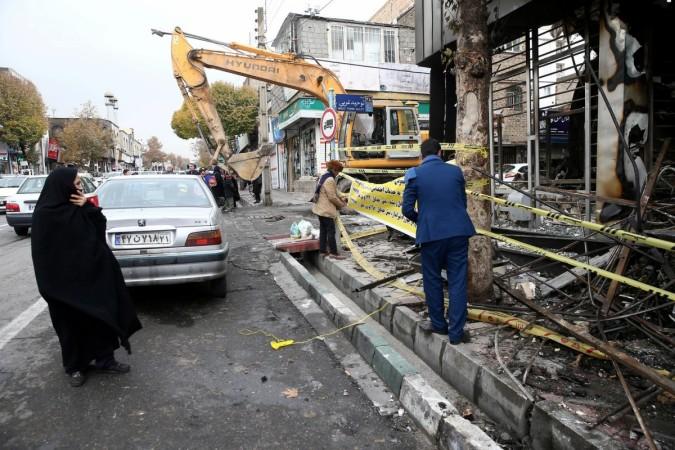
In November, after the government announced an increase in gas prices between 50% to 300%, protests erupted in 22 cities. According to the Amnesty International data, at least 200 protesters were killed and thousands arrested in the crackdown.
Chile
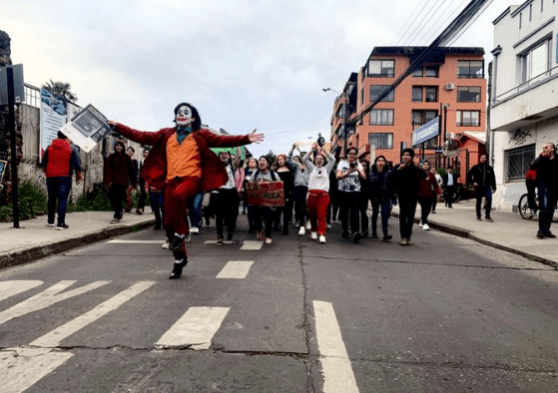
In October, the protests began in Santiago over the announcement of a hike in subway fares. Thousands of people gathered demanding the resignation of Sebastian Pinera over income inequality.
At least 29 people were killed during the mass fare evasion protest. The unrest led President Sebastian Pinera to fire ministers and reshuffle the entire cabinet due to the mass protest pressure. The subway fare hike was abandoned the protests are still on demonstrating for bigger changes like equality, education, health care and better cost of living.

















